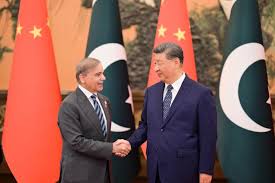UK’s new e-visa system for Pakistan: A step towards simpler travel

From July 15, the United Kingdom has launched an E-Visa service for Pakistani citizens visiting the UK for short-term study or work for less than a year. This change replaces the old paper-based visa stickers with a digital system. Previously, applicants had to submit documents physically and attend embassy appointments. Now, the process is faster and more convenient, requiring only online confirmation. The UK government aims to improve travel procedures and strengthen relations between the two countries. This new visa system offers practical relief for Pakistani students and workers, making access to UK opportunities easier and more efficient.
The UK’s launch of e-Visas for Pakistani students from 15 July marks a pivotal shift in visa processing. Previously, applicants had to endure long waits, biometric appointments, and passport submissions at visa centers, often incurring high travel costs and experiencing delays. The new system allows online applications without physical documentation, streamlining access to short-term study opportunities.
Pakistan’s e-Visa rollout in 2019 offers a relevant parallel: it reduced in-person visits and improved transparency for foreign nationals. Similarly, Nigeria’s digital visa reforms led to faster approvals and lower fraud rates. The UK’s move reflects a broader commitment to secure, inclusive, and tech-driven mobility between the two nations.
The shift to digital visas not only streamlines entry but also aligns with global innovative border practices. Linked directly to UKVI accounts, the system reduces human error in verification and enhances security checks at entry points. It enables immigration officers to access applicant records more quickly, facilitating smoother arrivals for Pakistani students.
In 2024, over 1.16 million UK visas were granted globally for work, study, and family reasons, with Pakistani nationals receiving approximately 136,000 visas, including 4% of all visitor visas. Among these, short-term business and travel visas saw steady growth, while 432,000 study visas were issued globally, with Pakistan contributing a significant share.
Scholarships such as Chevening, Commonwealth, and GREAT have supported hundreds of Pakistani students. With the new E-Visa system, applicants can now upload digital proof instantly, enabling faster access to fellowships, conferences, and academic programs and eliminating delays associated with physical documentation and visa center visits.
The UK’s new digital visa policy for Pakistani students opens doors beyond the academic stream, streamlining access for short-term visitors, researchers, and aspiring professionals. By eliminating logistical hurdles such as embassy visits and passport submissions, the system encourages more individuals to explore scholarships, internships, and networking events in the UK’s dynamic educational and business sectors.
For many, the simplified process lowers psychological and financial barriers, motivating them to travel with confidence. This reform transforms visa acquisition from a deterrent into a catalyst for cross-border exploration, empowering Pakistani talent to engage with the UK’s vast cultural, academic, and career opportunities.
While education remains a key driver of travel to the UK, business opportunities are equally compelling. In 2024, UK-Pakistan bilateral trade reached £4.7 billion, with £2.5 billion in imports from Pakistan and £2.2 billion in UK exports. Pakistani entrepreneurs are increasingly exploring sectors like textiles, IT, and professional services. The UK’s simplified E-Visa system now enables faster access to trade fairs, networking events, and short-term business engagements, making it easier for professionals to tap into one of Europe’s most dynamic markets.
The UK’s digital visa reform is more than a convenience; it is a strategic enabler. By removing procedural barriers, it encourages Pakistani students, researchers, and entrepreneurs to explore both academic and commercial avenues. Whether attending a conference or launching a startup, the new system fosters cross-border mobility and strengthens UK-Pakistan ties. It is a timely upgrade that empowers talent to seek global exposure with greater confidence.





